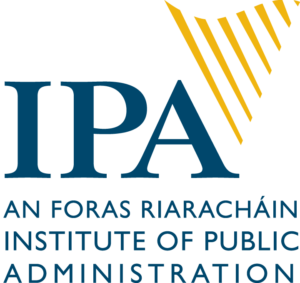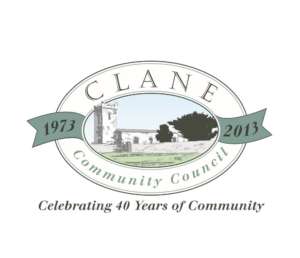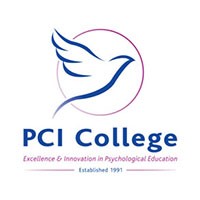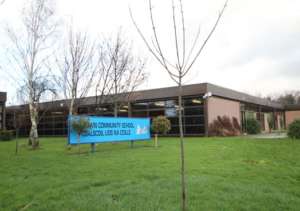Course Description
FACING INTO CHANGE – Dealing with Life Transitions
People’s College for Continuing Education and Training
FACING INTO CHANGE
A learning programme for dealing with life transitions.
Course Presenters
The course will be presented by Eileen Quinn and Tom Doyle. Both Tom and Eileen are
retirees from the management team at the Institute of Technology in Blanchardstown that is
now part of TU Dublin. Both completed doctoral degrees in the area of organisational
change and the role of individuals in effecting such change. Both are experienced group
facilitators.
This workshop series consists of 8 x 2 hour sessions.
About the programme
There are times in our lives when we feel compelled to be more intentional about change, to
seek a different future, to discover what is possible and act on those discoveries rather than
waiting passively for something to happen. We sense that we have reached some transition
point, where what went before can no longer apply, where the future can seem uncertain or
maybe unsettling.
For many of us, retiring or departing from a structured work environment marks such a
pivotal transition. It challenges us to redefine how we perceive time and work, our family and
community connections, about how we want to shape the future story our lives.
What do we mean by facing into change?
Facing into change is about embarking on a course of action despite an uncertain outcome,
driven by a belief that the pursuit itself holds meaning. It is meaningful because even if we
cannot foretell our future, we know we can change what is possible in that future. It is an
optimistic stance with the anticipation that there is always a preferable state to what we live
with at present. The process does not begin with some clearly defined end point in mind but
instead emerges from a deeper awareness of our present situation and self -perception, the
story we tell about ourselves. It involves reflection and dialogue about what is happening
now, believing that future possibilities will emerge from this new awareness. Such a change
process might appear to occur haphazardly. In fact, it is not random but very much
influenced by how we engage with it.
Engaging openly with change
We start by accepting that we ourselves are the most important instrument of change, that
facing into change involves a new and more open way of attending to the world.
Writers on change talk about three essential characteristics needed to allow transformative change to happen:
• An open mind enables us to question old mental models or preconceptions about ourselves
and others that can be a source of resistance to change. We suspend judgement and
criticism and approach our present life situation with curiosity and openness to new ideas.
We begin to craft a richer life story about ourselves and how it might evolve.
• An open heart allows us to be gentle with ourselves and have empathy for others. It allows
us to listen more deeply and have more authentic conversations from which come the
insights and trust that guide us during periods of change.
• An open will allows us to act on these new perspectives, to try new things and be open to
learning from such experiments. It involves taking purposeful action which aligns with what
we believe is good for ourselves and those around us.
How this programme can help
We believe that these ideas have particular relevance to people at this phase of life.
Retirement is now being reframed as a time to harvest, to make new connections, to be who
we want to be. Our programme is essentially an opportunity to practice this type of
engagement. It provides a framework and a forum for reflection and dialogue, an opportunity
to explore in a structured way the why, how and wherewithal of facing into change at this
particular life juncture.
The aims of the programme are to:
• Provide participants with a new perspective on the possibilities and challenges that
retirement and other life transitions can hold.
• Advocate for a response that involves actively engaging with such transitions rather
than passively letting them happen by demonstrating the process of emergent change and our role in shaping its outcome.
• Show how this approach can lead to a deeper awareness of what we want to achieve
and how we want to be in this period of our lives.
• Provide participants with the tools that will enable them to take the first steps towards
making such transitions.
Who is it for?
The programme is intended for those who have recently retired or are contemplating
retirement and are open to new ways of thinking about personal growth and change.
Further details
Registration for this course can be done by:
- Payment through website – PayPal or Debit/Credit Card – Just hit the Buy Now Button
- Calling the office on 01 8735879 and you have the option to pay by card over the phone,
- Posting enrolment form along with cheque/Postal Order or Cash to Congress House, 31/32 Parnell Square, Dublin 1
- Payment can also be made in the office before the class commences for the term
| College Name | People’s College for Continuing Education and Training |
| Course Category | Personal Development, Wellbeing |
| Course Type | Classroom Based |
| Course Location | Dublin, Ireland |
| Location Postcode | Dublin 1 |
| Course Start Date | 1st October 2024 |
| Course Fee | 130 |
| Course Duration | 8 weeks |
| Course Times | Tuesday morning at 11am to 1.00pm |
Course Provider
People’s College for Continuing Education and Training
Make Enquiry
Map
People’s College for Continuing Education and Training
Dublin
Dublin







Comments, Questions & Reviews